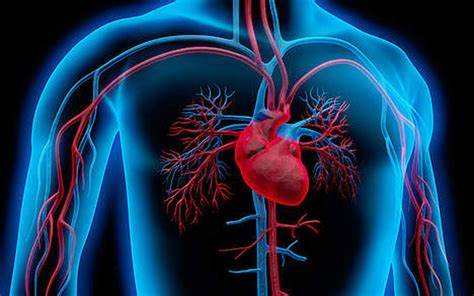Chronic heart failure (CHF) is a progressive condition where the heart is unable to pump enough blood to meet the body’s needs. When left untreated, CHF can lead to severe complications and significantly impact a patient’s quality of life and lifespan. This article delves into the consequences of untreated CHF, highlighting the importance of early diagnosis and intervention.
What Is Chronic Heart Failure?
Chronic heart failure is typically the result of other cardiovascular diseases, such as coronary artery disease, high blood pressure, or cardiomyopathy. These conditions weaken the heart muscle over time, reducing its ability to pump blood efficiently. CHF can affect either the left, right, or both sides of the heart, leading to different symptoms and complications.
Symptoms of Chronic Heart Failure
Symptoms of CHF may include:
Shortness of breath, especially during physical activity or when lying down
Fatigue and weakness
Swelling in the legs, ankles, and feet (edema)
Rapid or irregular heartbeat
Persistent cough or wheezing
Increased need to urinate at night
Swelling of the abdomen (ascites)
Sudden weight gain from fluid retention
Difficulty concentrating or decreased alertness
These symptoms can range from mild to severe and tend to worsen over time if the condition is not managed properly.
SEE ALSO: How to Reverse Alcoholic Cardiomyopathy
Complications of Untreated Chronic Heart Failure
Worsening Heart Function
Without treatment, the heart’s ability to pump blood continues to decline. This leads to an increase in the severity and frequency of symptoms. The heart compensates by enlarging, developing more muscle mass, and pumping faster. However, these compensatory mechanisms are temporary and eventually fail, leading to further deterioration in heart function.
Fluid Accumulation
One of the hallmark features of CHF is fluid retention. When the heart cannot pump blood effectively, fluid backs up into the lungs, liver, abdomen, and lower extremities. This leads to:
Pulmonary edema: Fluid in the lungs causes severe shortness of breath, a hallmark of acute heart failure, and can be life-threatening.
Peripheral edema: Fluid accumulates in the legs, ankles, and feet, causing swelling and discomfort.
Ascites: Fluid collects in the abdominal cavity, leading to bloating, discomfort, and digestive issues.
Kidney Damage
The kidneys rely on a steady blood flow to function correctly. Reduced cardiac output in CHF leads to decreased renal perfusion, which can cause or exacerbate kidney disease. This is known as cardiorenal syndrome. Over time, impaired kidney function further complicates CHF management by making fluid balance and blood pressure control more difficult.
Liver Damage
Chronic congestion of blood in the liver, known as congestive hepatopathy, can occur due to right-sided heart failure. This can lead to liver damage and, eventually, liver cirrhosis if untreated. Symptoms may include jaundice (yellowing of the skin and eyes), swelling in the abdomen, and elevated liver enzymes.
Arrhythmias
Heart failure increases the risk of developing abnormal heart rhythms (arrhythmias), including atrial fibrillation and ventricular tachycardia. These arrhythmias can be dangerous and may lead to stroke, sudden cardiac arrest, or death. Atrial fibrillation, in particular, is common in CHF patients and increases the risk of blood clots forming in the heart, which can travel to the brain and cause a stroke.
SEE ALSO: What Happens If Your Pacemaker Stops
Increased Risk of Stroke
The risk of stroke is significantly higher in individuals with untreated CHF. This is primarily due to the development of blood clots in the heart, which can dislodge and travel to the brain. Additionally, untreated hypertension, a common cause of CHF, further increases the stroke risk.
Reduced Exercise Capacity And Quality of Life
As CHF progresses, patients experience a significant decline in their ability to perform physical activities. Even simple tasks such as walking or climbing stairs become exhausting. This decline in physical capability severely impacts the quality of life, leading to social isolation, depression, and anxiety.
Cognitive Impairment
Chronic heart failure can lead to cognitive decline and memory problems. Reduced blood flow to the brain and chronic hypoxia (low oxygen levels) can damage brain cells, leading to difficulties with concentration, decision-making, and memory. This cognitive impairment further reduces the patient’s ability to manage their condition and adhere to treatment plans.
Increased Mortality
Untreated chronic heart failure is associated with a high mortality rate. Studies have shown that the prognosis for untreated CHF is poor, with significant reductions in life expectancy. Early and effective treatment can improve survival rates and enhance the quality of life for those with CHF.
Importance of Early Diagnosis And Treatment
Medical Management
The management of CHF typically involves a combination of medications, lifestyle changes, and, in some cases, surgical interventions. Medications such as ACE inhibitors, beta-blockers, diuretics, and aldosterone antagonists help manage symptoms and improve heart function. Regular monitoring and adjustments to treatment plans are essential to manage the condition effectively.
Lifestyle Modifications
Lifestyle changes play a crucial role in managing CHF. Patients are advised to:
Follow a heart-healthy diet low in sodium to prevent fluid retention.
Engage in regular physical activity as tolerated to improve cardiovascular fitness.
Quit smoking and limit alcohol intake to reduce cardiovascular risk factors.
Monitor weight daily to detect fluid retention early.
Manage stress through relaxation techniques and support networks.
Surgical Interventions
In severe cases, surgical interventions may be necessary. These can include:
Implantable cardioverter-defibrillators (ICDs) to prevent sudden cardiac death.
Cardiac resynchronization therapy (CRT) to improve the heart’s pumping efficiency.
Coronary artery bypass grafting (CABG) or angioplasty to address blocked arteries.
Heart valve repair or replacement.
Heart transplant in end-stage heart failure.
Conclusion
Untreated chronic heart failure leads to a cascade of worsening symptoms, severe complications, and a significantly reduced quality of life and lifespan. Early diagnosis and comprehensive treatment are essential to manage the condition, improve outcomes, and enhance the quality of life for those affected. Patients with CHF should work closely with their healthcare providers to develop and adhere to a personalized treatment plan that addresses their specific needs and circumstances.

